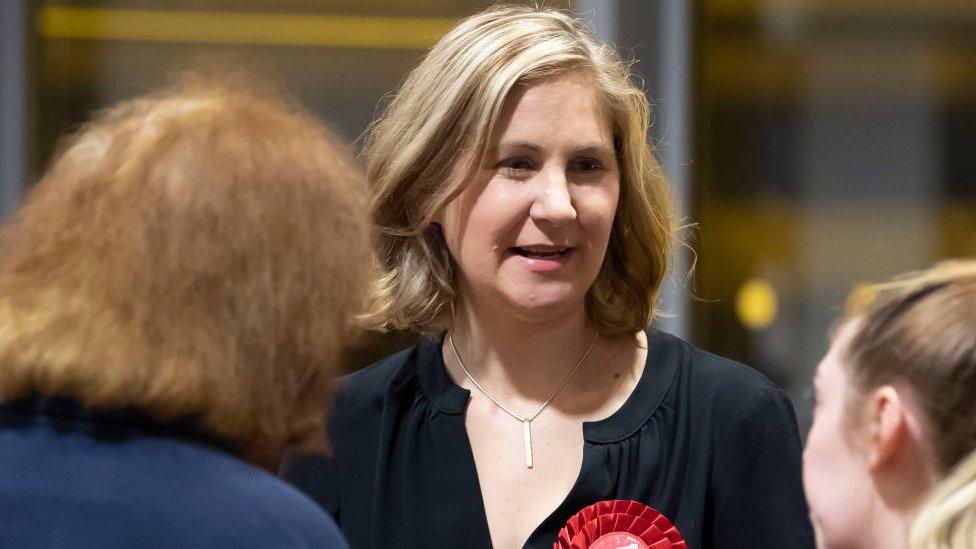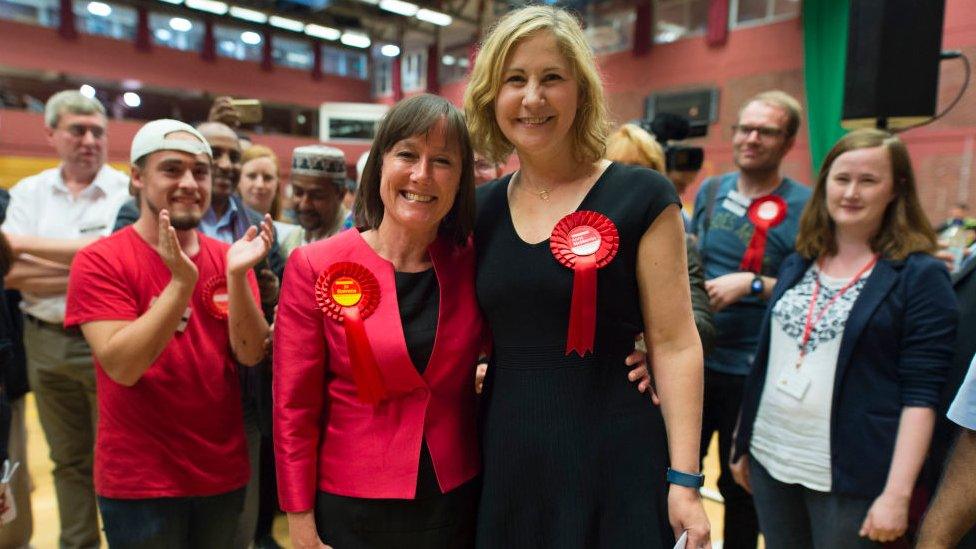MP Anna McMorrin: My experience in coercive relationship
- Published

Anna McMorrin is Labour's shadow minister for victims and youth justice
"When you're in a coercive, controlling relationship, it's not all bad, otherwise you wouldn't stay.
"Generally, the person draws you in with lots of positives, you fall in love, and that's when the controlling starts."
Anna McMorrin has been Cardiff North MP since 2017, winning the seat twice for Labour.
On International Women's Day, she has spoken about her experience of being in a coercive relationship.
She told BBC Wales that "people shouldn't feel stigmatised" and that "anyone" can find themselves in such a situation.
Ms McMorrin called for changes in the justice system and said it has "very little understanding" of coercive control.
The Labour shadow minister for victims and youth justice described how the relationship started well, but soon changed.
She said: "Sometimes it's about not knowing what's true, what's not.
"That's about a person confusing you on lots of different levels about where they are, what you're doing, how you spend your time.
"Withdrawing their love, then giving it again. Having affairs, denying them, deleting things from your laptop, from your phone.
'Financial and emotional control'
"In those circumstances, you want to see the good in people and you want to see the best times, but actually it takes a lot to get out of that kind of relationship."
She said it took her a long time to build up the courage to leave, and said there was an element of financial control as well as emotional control, which made it harder.
By talking about her own experiences, she hoped it would help break down the stigma, and the feeling of shame that many victims experience.

Anna McMorrin, here with Cardiff Central MP Jo Stevens, first won her seat at the 2017 general election
Ms McMorrin said: "Most of the time, you don't even want to admit it to yourself. Especially as a strong woman and someone who prides myself on being a strong woman.
"So you might be getting on in your career in your job or life with friends. But actually behind closed doors is a different side where you're anxious, where you're afraid, where you're constantly questioning yourself about what is true, what is not true".
The trauma still lives with her today, but she feels that emotional abuse is not taken as seriously as physical abuse.
"It can be just as traumatic," she said. "The trauma is with you during the relationship, and it doesn't leave you afterwards, it takes a long, long time to recover".
'Feeling ashamed, stigmatised'
She said: "It's really very difficult to leave, and I think that is a really important point," she said.
"I feel as shadow minister for victims, that I have a responsibility to talk about that an abusive coercive relationship can happen to anyone".
"I think it's important that we are able to speak about it, to break down those barriers to break down the stigma. Feeling shamed, feeling stigmatised for it, to know that actually anyone can face this".
Ms McMorrin said: "There needs to be training in place for the courts, the whole system, the [Crown Prosecution Service], who don't understand the trauma that victims go through.
"There's no support within the justice system and very little understanding for women who go through either domestic abuse, coercive abuse, emotional abuse, and it's all too common.
"We need to see a better understanding of that."

WOMEN OF WALES: Showcasing amazing Welsh female talent and stories
PEOPLE THOUGHT OF AS BITS OF AN ALGORITHM: Life and death in the warehouse

Related topics
- Published22 February 2022
